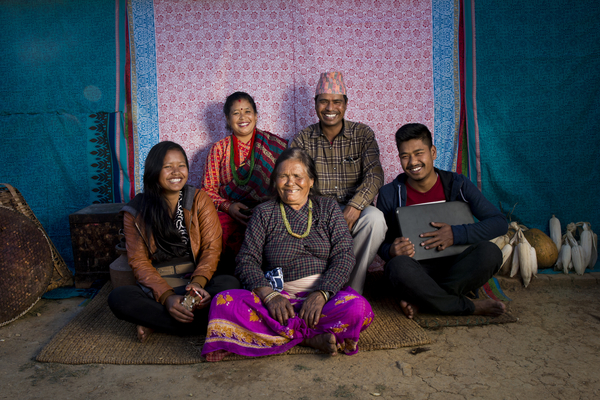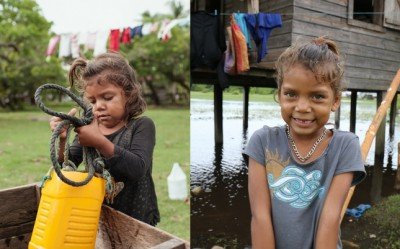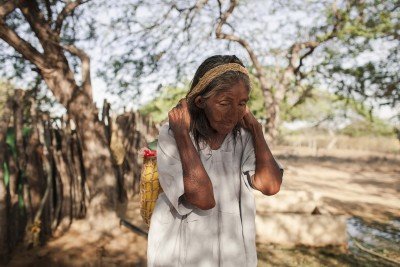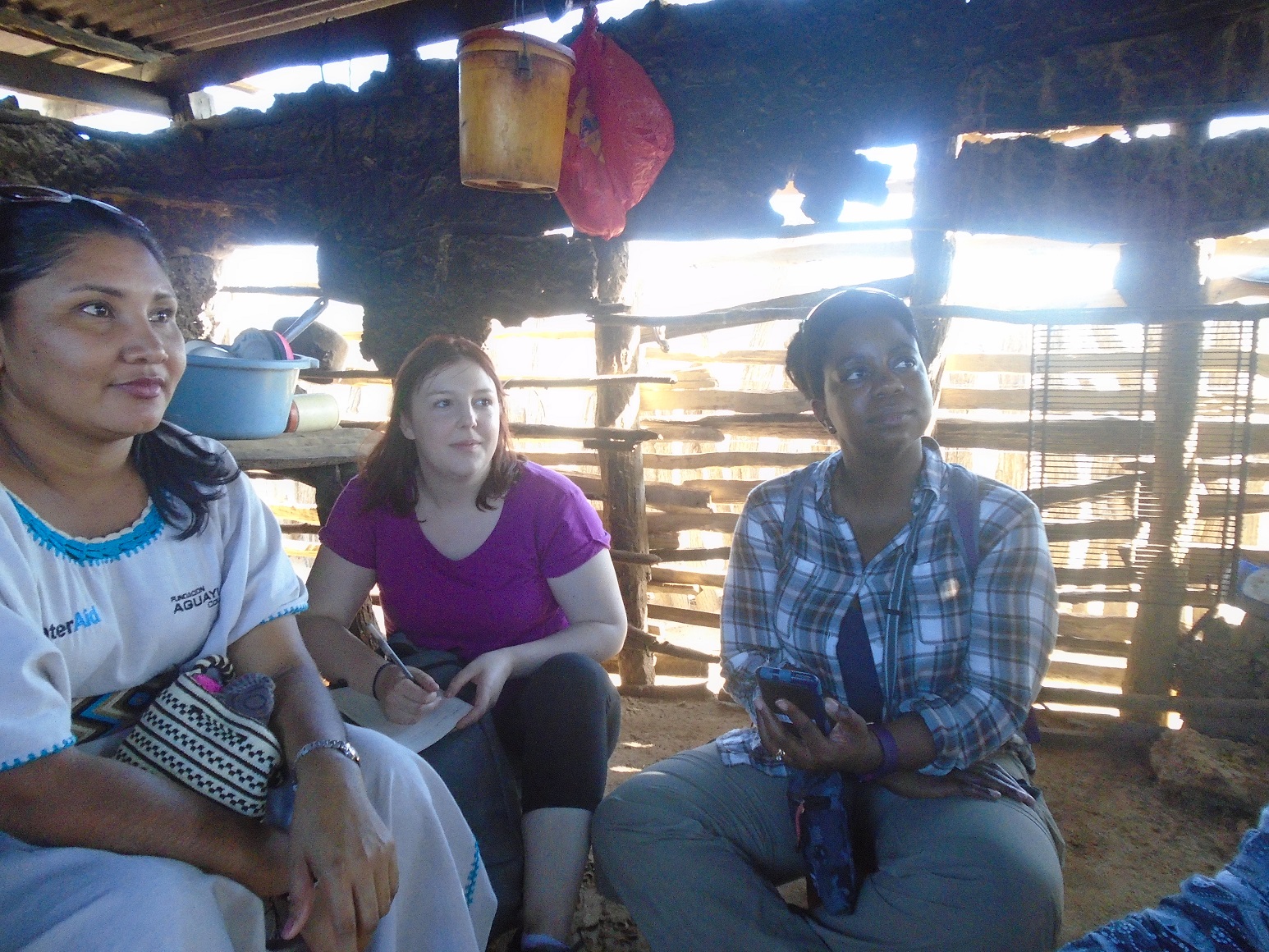The Nagarkotis

The photo exhibits three generations of the Nagarkoti family. Each generation has experienced unique differences in regards to sanitation. Both Batuli, 72, and her son, Aanand, 45, endured harsh conditions — having to get up at daybreak to fetch water and also due to no indoor plumbing, they had to defecate in the streets. With the introduction of indoor plumbing, Salina, 21, and Arun, 18, admitted to always having access to water. “Hearing my grandmother talk, I feel very lucky,” Salina said. “When I hear my father talking about people defecating openly by the roadside, I feel kind of embarrassed and sad as well.”
Curator’s note: The following is an excerpt of the Nagarkoti family’s story as told by WaterAid staff on December 9, 2016.
When Batuli was young, girls did not go to school. Unable to read or write, Batuli said, “In those days, there were no schools. None of my friends went school. I used to think we would never be developed like this. Life is easier these days; it has become very comfortable.”
When Batuli was younger, she used to get up at 3 a.m. to collect water, otherwise, she would risk missing out.
“Sometimes just to fill a Gagri of water, I had to wait for hours because the people who came earlier would fill all the water from the well and I had to wait until the well was filled again,” she said.
“There was no toilet in the community and everybody used to defecate openly. “There used to be faeces everywhere,” she said. “People defecating on the roadside was common. Diarrhoea was a very big problem during those days and there were many cases of malnutrition.”
According to Batuli’s son, Aanand, 45, conditions were not much better in his youth. “When people were sick, they used to rely on traditional healers,” Aanand said. “There was a hospital as well but they would not go there. They were not aware that the main cause of diarrhoea was dirty water; they believed it was because god was angry with them.”
For Batuli’s granddaughter, Salina, 21, life is very different from the one described by her grandmother.
“Hearing my grandmother talk, I feel very lucky,” Salina said. “I never had to struggle for water in my life. The tap-stand was at our home and we had water all the time. We also have a toilet at home. When I hear my father talking about people defecating openly by the roadside, I feel kind of embarrassed and sad as well.”
Salina’s brother, Arun, 18, holds a laptop, which represents the generational change in his family how the technology has drastically changed since his grandmother’s youth.
Photo credit: WaterAid/Mani Karmacharya






